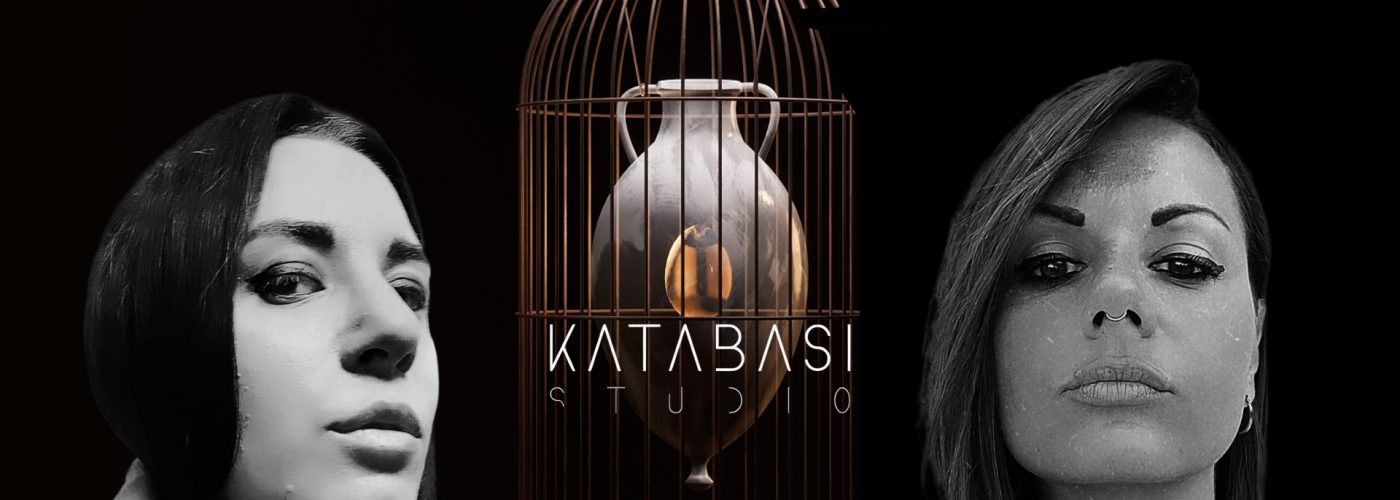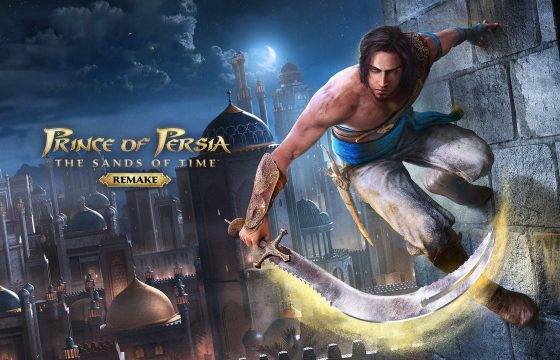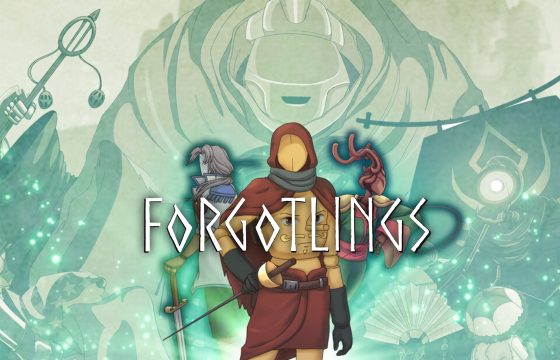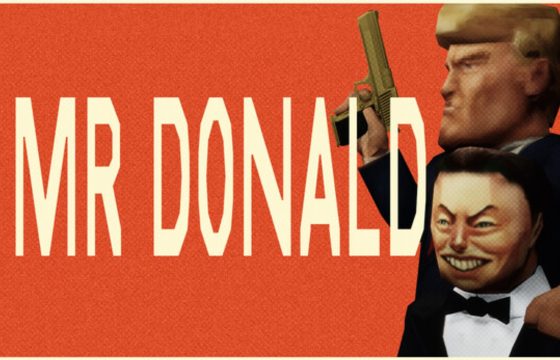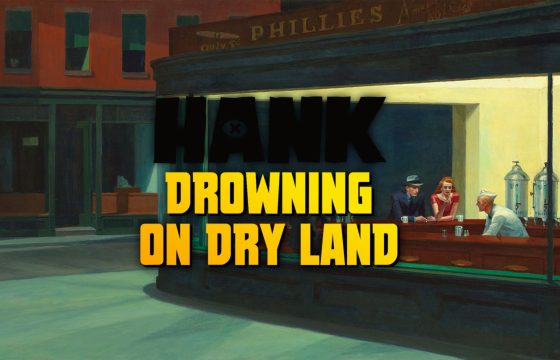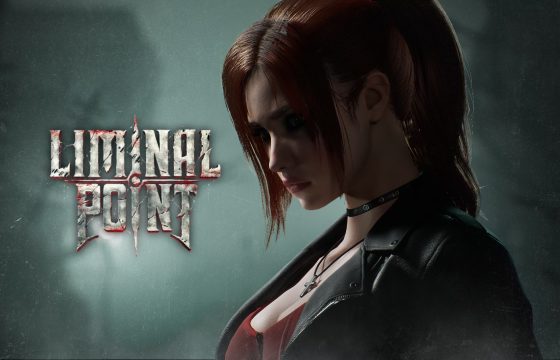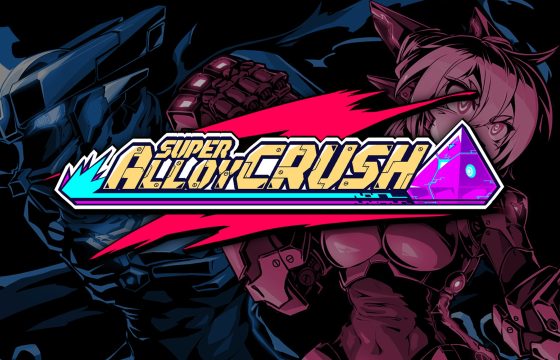Fortuna Imperatore, aka Axel Fox, and Francesca Balestri, the female duo leading Katabasi Studio, reveal the genesis of Parthenope in this exclusive interview.

How can two divergent souls, with starkly contrasting visions, reconcile their differences, find common ground, and collaborate harmoniously on a creative project? This was the initial conceptual hurdle that Fortuna Imperatore, aka Axel Fox, and Francesca Balestri faced head-on during the genesis of Parthenope. Auteur in nature, this project boasts immense potential and exacting standards, born from the minds of two young creatives endowed with great artistic sensibilities.
Fortuna, a self-taught developer, embarked on her journey into game design without prior experience, transforming her life through unwavering determination, extensive research, dedication, and rigorous study. Her path to becoming a professional in the Italian video game industry was defined by experimentation, methodical application, and relentless hard work. She first made waves with Freud’s Bones and later with Bluethroot, establishing herself as one of Italy’s most promising talents.
Francesca, on the other hand, brings a substantial background in video games as an Art Director and 3D Artist, alongside her role as a teacher at the International School of Comics in Florence. Known as “be_frankie” on Twitch, she is an avid gamer with a profound understanding of the gaming industry, as demonstrated through her extensive web content dedicated to analytical studies of video games.
During one of these meetings, where Fortuna was a guest on Francesca’s channel to discuss Freud’s Bones, a profound exchange of ideas and perspectives emerged, igniting the inception of Parthenope. This refined yet highly popular project aims to authentically capture Naples’ beauty, passion, diversity, and above all, its raw authenticity.
We had the opportunity to welcome Fortuna and Francesca – to whom we extend our gratitude for accepting our invitation – to our microphones to ask a few questions. This in-depth interview aims to uncover the essence of their project, reveal the surprises in store for us, and delve into their personal journeys. Stay tuned with us so you don’t miss out.

The Interview
Let’s start the interview with an introductory yet essential question to reconstruct your individual and collective journeys and explore the origins of the Parthenope project. How did you first meet, and under what circumstances? More importantly, what motivations inspired you to conceive and bring to life a creative project of such scale and ambition?
(Francesca): We first connected through the Freud’s Bones project. I was researching video games that integrated psychology into their narrative systems, and I found that there were few examples, with Fortuna’s project being a notable exception at the time. Initially, there wasn’t much information available, but I was impressed and invited her for a live streaming interview. It was a particularly stimulating exchange that carried on beyond the cameras, ultimately leading us to where we are today.
Freud’s Bones emerged from Fortuna’s sense of urgency, while Parthenope springs from a different urgency that we both share and have chosen to express through this new project.
Fortuna, it’s undeniable that you are one of the most intriguing and multifaceted personalities in the Italian independent gaming scene, possessing an artistic mind in every sense and characterized by an eclectic and highly innovative personality. Your approach to game design is distinguished by its extraordinary originality and the socio-psychological depth of the themes you explore. However, stepping back for a moment, could you share more about your background as a gamer and how you first professionally entered the gaming industry?
(Fortuna): Well, I’ve always been a gamer. Alongside football, video games were my childhood obsession, a true burning passion. I remember playing Tomba and staying up all night just to keep playing, or diving into Broken Sword. It was like a reality superimposed on reality, giving me profound joy. I played with my cousins and my brother, and that magical circle we created was something I chased throughout my adult life. There’s a constant longing to recapture that feeling of peace, isolation from the world, and unconsciousness.
As for my journey as a gamer, that’s pretty much it. Breaking into the video game industry in Italy felt like kicking down doors, but surprisingly, I didn’t face much resistance. Despite having critics, my unconventional approach intrigued people enough to welcome me in. My advice is always to champion character and originality, especially in thematic choices. That’s the only path I believe in.

Fortuna, you began this journey as a solo developer, is that right?
(Fortuna): Yes, that’s correct. At the time, I was completely new to the field and unaware of the existence of video game journalism. Back in 2018, I couldn’t have imagined that there was a growing interest in video games in Italy.
However, things have changed significantly, especially since the 2000s. The gaming industry in Italy has expanded and gained more credibility. What was once considered a niche interest, associated with societal outcasts who played video games or watched anime, has now become mainstream. Being a “nerd” is more accepted and even celebrated today, partly thanks to the influence of TV series. The medium has evolved and continues to establish its place in popular culture.
Throughout your extensive educational journey, you earned a master’s degree in “Existential Anthropology and Philosophical Counseling” from the European University of Rome, with a thesis titled “Autopoiesis in the Video Game World,” in which you present your personal theory on the creative and philosophical power of certain video games. Could you elaborate on this vision and explain, in your view, what makes video games such a powerful medium?
(Fortuna): When I wrote my thesis on autopoiesis, I was primarily exploring how video games had sparked a profound sense of personal rebirth in me, but in a deliberate way. Up until a certain point in life, we are shaped by various social and familial influences, like being cast in a mold. Then, there comes a moment of clarity—somewhat Nietzschean—where we begin to choose who we want to become.
Video games played a crucial role in this transformation by providing models and aspirational figures that helped guide me. They enabled me to rebuild myself by enhancing aspects of my personality. For example, I was initially naive and emotionally tender, lacking strategic thinking. Through games, I realized the skills I wanted to develop and integrated these experiences into my own personality.
Games like Hitman, Far Cry, and The Last of Us contributed to this personal evolution. It wasn’t a conscious strategy but rather a natural process. I observed that while some people naturally exude charisma, I initially felt I lacked that quality. Video games taught me how to develop it.
My thesis centers around this idea of the virtual world as a powerful and virtuous space. Video games convey messages and values that often go unnoticed in broader society and offer a depth beyond that of cinema and literature. They have the potential to educate and inspire spiritually, which is the essence of what my thesis explores.

How do your psychological skills influence the creative process in video game development? Are the psychological themes you explore a result of your expertise, a professional inclination, or a desire to shed light on particular issues?
(Fortuna): I studied psychology at university, but I don’t consider myself a passionate expert in the field. The university experience didn’t spark significant curiosity or provide me with profound competence, and the degree holds little personal value for me. I initially pursued psychology with the intention of becoming a therapist, but my focus shifted during my studies.
For me, incorporating psychological themes into my work is more about artistic expression—it’s a way of channeling something deeply felt. I’ve encountered various personal crises that video games have helped me confront and process. I realized that video games have the power to explore different facets of personality and allow people to address their issues through play. For example, with Freud’s Bones, I received messages from individuals who had never engaged in therapy but found themselves deeply moved by the game, playing late into the night.
I believe my intuition was correct: Freud’s Bones wasn’t just a reflection of my own experiences but touched on a broader, universal crisis that many people relate to. This is the unique power of video games—they can evoke profound emotional responses, much like cinema, but are often less recognized for this ability. Through my work, I aim to encourage self-analysis and reflection, as I am inherently a deeply analytical person.
Francesca, let’s delve into your background a bit. Did you pursue any specific studies in the arts? What are your main stylistic influences?
(Francesca): I attended an experimental art high school in Lucca and later studied at the Faculty of Architecture in Florence. While this educational path provided a foundational methodology, much of my most significant learning came from self-directed study.
Interestingly, my main source of inspiration is literature. Despite being strongly encouraged to pursue classical studies during my early teens—an area I was not particularly fond of—I chose to follow my artistic interests as a form of rebellion. Fortunately, my family supported my decision and granted me a lot of freedom.
From a young age, literature has sparked my imagination and creativity. I believe that words possess shape, color, and sound, even when taken out of their original context. I often envision words as emerging from a mental black box, projecting them onto various planes to create visual images. As a child, this process was challenging. I wasn’t a prodigy, but my curiosity and love for reading drove me. I recall reading Victor Hugo’s works despite not understanding many of the words, and translating those words into images was both exhausting and excellent training.

On the web, you’re known by your artistic name “be_frankie,” which is also the name of your project—a channel launched in early 2019 that serves as a hub for in-depth exploration, discussion, and entertainment, showcasing your extensive knowledge of the gaming world. Can you share how you transitioned from being a consumer of video games to becoming a creator? When and why did you decide to pursue game design and specialize in art design? Was this shift a sudden inspiration or a gradual process that unfolded over time?
(Francesca): It was a gradual process. Simply put, I grew tired of being just a consumer, and this feeling had been building long before 2019, which now seems quite distant to me.
For personal reasons, I wasn’t ready to embark on a project like the one I’m experiencing now with Fortuna. Although I had considered it and done some research, it wasn’t until later that I fully committed to this path.
Before 2019, I was in a state of profound isolation. While I need solitude, during those years, it became overwhelming even for me. I was yearning for active engagement, wanting to study, understand, dissect video games, and foster discussions. I wanted to share my vision and connect with others who had theirs. Meeting Fortuna was a turning point—I believe she reignited perspectives I had long forgotten.
In truth, I didn’t know what or who I was searching for until she came into my life. She uncovered desires buried beneath layers of words. At that moment, I realized I no longer just wanted to talk; I wanted to create and do so alongside her. It felt like finding a kindred spirit with a shared vision.
Transcending entertainment, aspiring to iconic status with a project dedicated to celebrating the freedom and creative vision of its founders—these are the words that describe Katabasi Studio, the independent game company you recently founded. Could you take us through the genesis of the studio and the vision you’ve crafted? What message do you aim to convey, through what means, and to what audience do you intend to reach?
(Fortuna): As a slogan, I’d say that my approach doesn’t follow a meticulously planned path. I want to dispel the myth that my creations involve months of detailed planning. Often, ideas come to me in just a few minutes. For instance, I came up with the collective’s slogan in under two minutes.
My mind tends to quickly synthesize complex concepts. With Francesca, we aimed to develop an artistic vision for the collective that transcends the typical video game studio model. We envision something akin to Warhol’s Factory or Lady Gaga’s approach—expanding into various mediums, not just video games.
Many game studios rely on clichés and rigid frameworks, which is why many games, unless they are highly unique, fail to make a lasting impact. Our aim is to move beyond mere entertainment and appeal to a broader audience, including those who have never played a video game. We’ve already received interest from people who previously disliked video games but were intrigued by our trailer.
We want to challenge the prejudices against video games and establish ourselves as iconic. We’ve combined our visions and recruited individuals who are open to working with two female leaders—a rarity in the industry. These collaborators are passionate, eager to experiment, and focused on the artistic aspects of game development rather than just the hours or financial aspects. They brought their own contacts, creating a team dedicated to making profound, emotionally resonant games. Now, we’re seeking investors to support this vision.

The creative process behind Parthenope was described by Francesca as a true katabasis—a descent into the Underworld. It was a mystical journey where Fortuna, like Virgil guiding Dante, led you to immerse yourself in Naples, absorbing its romantic, tragic, spiritual, and carnal essence. What motivated you to undertake this katabasis, and why do you believe this approach is, has been, and will be the most appropriate for telling Parthenope’s story?
(Francesca): You mentioned Dante, and it reminds me of the first verse of the Divine Comedy. At 30, I no longer recognized the person in the mirror. I was standing on the edge of an infernal abyss, facing a choice: remain immobile on that threshold forever or throw myself in and confront the shadows. I chose the latter and believe I continue to choose it every day. I have accepted my shadows and want to keep doing so.
The only way not to remain stagnant is to keep moving; nothing is born from immobility. Naples helps me in this. Naples embraces every part of you, even the darkest. Naples does not judge but frees the narrative we create of ourselves. And in Naples, you can only descend, both physically and intrapsychically.
I believe this approach, at least from my perspective, aligns closely with Fortuna’s vision. This is the only way to tell the story of Naples, and thus Parthenope.
The distinct impression is that in Parthenope, the city of Naples will not merely serve as a backdrop or context, but will be a protagonist in its own right. So, our question is: why did you choose Naples? Can it be said that you chose Naples, or rather, that Naples chose you?
(Francesca): In my case, Naples chose me twice. It was a call that lasted more than ten years, and I followed that call. At some point, it became a conversation I could no longer postpone. I realized, especially in recent years, that this land is literally a living entity that knows how to communicate, listens to you, and wants to be listened to. So yes, I was ensnared by the city; I did not choose it.
(Fortuna): For me, it’s more about a carnal connection and profound hatred. I have felt more hatred towards this land than love. I perceived it as a stepmother, a distorted maternal figure. I fought against the idealization of Naples, against those who only described its beauties. For a period, I closely followed Saviano and through him, I wanted to look into the abyss of this city, contrasting with the idyllic postcards of it. I adopted that vision for years, along with the desire to escape, a feeling common to those who live here intensely because you feel betrayed, living in a place of breathtaking beauty that seems to have no space for you.
I remember my irritation when I saw the mural in Posillipo that read “I look at you and fall in love,” referring to the city. I considered this constant infatuation a privilege of Rome. At first, it bothered me to think of the wasted beauty of Naples, which stuns and lulls you. I wondered why everything else didn’t work and felt the city had no place for me.
Only later did I understand that I resemble Naples. My abilities, my soul, my heart are profoundly Neapolitan. I love and hate like Neapolitans do. I think outside the box because I always feel oppressed, like Neapolitans. Without wanting to cause harm, I look for ways to infiltrate the system.
I fell in love with Naples after overcoming my existential crisis with Freud’s Bones. Now, I feel the need to talk about this bond and how I believe there is a Neapolitan inside all of us, a part that needs to be evoked. It is this Neapolitan part that can help us adhere to our true selves, to accept not being crushed. Naples teaches you to win, in some way, to achieve a goal, whatever the means. For me, loving Naples is now much more conscious.

An enigmatic and timeless Naples, where history intertwines with legend in a web of mysteries to unravel. Although Parthenope is set in a completely fictional chronological period, is there a specific historical era of Naples’ history that inspired the lore concept?
(Francesca): There are many, actually. Naples has an extensive and deeply interconnected history and culture, enriched by numerous historical and mythological figures. Certain periods marked significant turning points, both positive and negative, whose effects still resonate today.
One such period was the Spanish domination, which lasted about 200 years and drastically transformed Neapolitan reality in every aspect. However, we haven’t pinpointed an exact timeframe for the entire story of Parthenope. The game will feature many references to various historical eras, even though we can’t delve into all of them in detail. The most important and decisive ones will be prominently reflected in the game.
A tale woven from mythology and folklore, legend and symbolism. Naples is one of Italy’s cities most deeply intertwined with myth, hidden behind its rich history. From the legend of the Munaciello to the Janara, the Neapolitan witch, and the ghosts of Castel Sant’Elmo, how will your game portray Neapolitan folklore and the legend of Parthenope the Siren who is said to have founded the city?
(Fortuna): We’ve devoted considerable effort to crafting a Neapolitan bestiary, delving into these figures, myths, and folklore with a balance of carnival-like exuberance and tragicomic depth. Instead of a stereotypical monstrous bestiary, we’ve focused on the unique characteristics of figures like the Munaciello, the Janara, and the ciucciuvettole—women with hunchbacks who resembled owls and were known for their gossip.
Our goal is not to produce literal monsters but to convey that certain morphological features of Neapolitans are exaggerated to fit a unique category of beings. When we refer to ourselves as “beasts,” it’s self-empowering; when others use the term, it’s problematic. Therefore, if I call us beasts, it’s entirely fitting, as each of us can be seen through those lenses.
As for the legends, we’ve meticulously selected a wide range of myths and stories. These will be integrated as subquests within the game, with some moving beyond traditional mythology to delve into more modern myths and the sanctification of contemporary figures.
(Francesca): In this regard, I aim to provide a counterbalance. I place great importance on historical and cultural accuracy, so our work speaks not only to those unfamiliar with Naples and its legends but also to those who were born, grew up, and may still live in Naples. However, we don’t want this commitment to restrict our creativity or interpretative freedom.
(Fortuna): As for the siren Parthenope, Francesca conducted extensive research and decided to move away from the traditional fish-tailed siren image. Instead of depicting a siren with a fish tail, we will portray Parthenope as a Greek siren, more akin to a bird-woman or a harpy. Although the romantic image I initially envisioned wasn’t historically accurate, we chose to represent the truth. Parthenope, in her authentic form, was half-woman and half-bird. This representation aligns better with the concept of Virgil’s egg, which also aids us symbolically and in our promotional efforts.

Your previous works, Freud’s Bones and Bluethroot, have showcased a distinctive socio-psychological approach. With Parthenope marking a shift towards a project with a pronounced artistic and cultural focus, we’re curious to know: will Parthenope retain the signature style that has characterized your earlier titles, or are you exploring a new direction?
(Fortuna): As an independent creator, I initially aimed to establish a unique trademark for myself. Over time, I’ve realized that my works consistently delve into the depth and complexity of human themes, touching on not just psychology but the very core of human experience. With Parthenope, while collaborating with Francesca this time, the narrative and stylistic approach will maintain its raw, unfiltered nature. The storytelling will be direct and unrestrained, free from rigid structures, and intentionally provocative.

I’ve always sought to provoke thought and emotion in my work, and in Parthenope, I’m pushing this provocativeness even further, striving to reach new heights that I haven’t yet achieved, even with Freud’s Bones. Although Freud’s Bones allowed me significant creative freedom, technical limitations, time constraints, and a certain level of caution held me back from fully realizing my vision.
Although Freud’s Bones included elements of nudity and sexual themes, they were somewhat restrained and didn’t produce the profound impact I had hoped for. In Parthenope, I feel a greater sense of freedom, particularly because the setting of Naples is ideal for this approach. Therefore, I am committed to advancing along this path, aiming to make a significant leap forward in terms of artistic expression and thematic depth.

Conclusions
We have reached the end of this engaging and insightful conversation with Fortuna and Francesca. We are very grateful to both of them for sharing valuable details and anecdotes about their experiences in the wonderful world of video games and their upcoming project, Parthenope, which we eagerly anticipate playing.
To learn more about Parthenope, we invite you to visit the official Katabasi Studio website and the LinkedIn profiles of Fortuna Imperatore and Francesca Balestri. There, you can explore their stories, artistic journeys, and stay updated on all their future projects.
Thank you for joining us today. Until next time!


